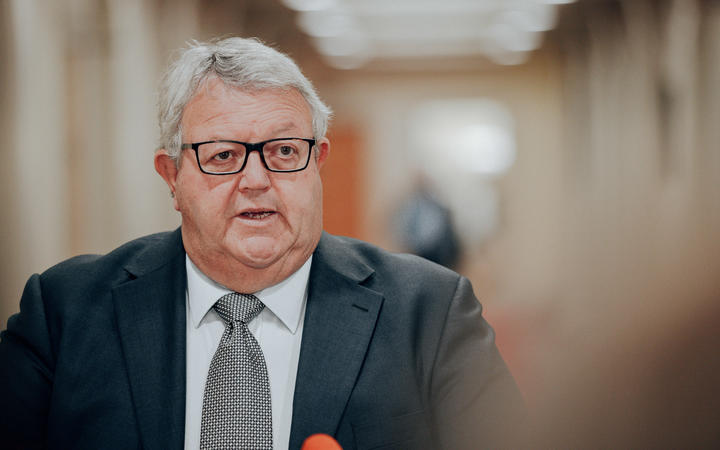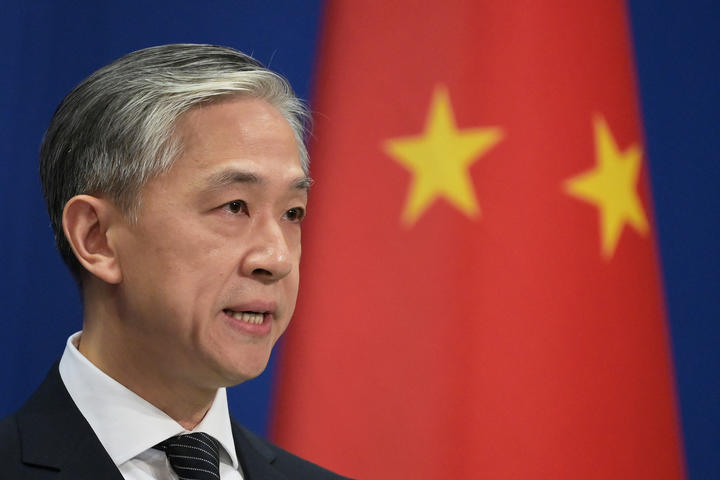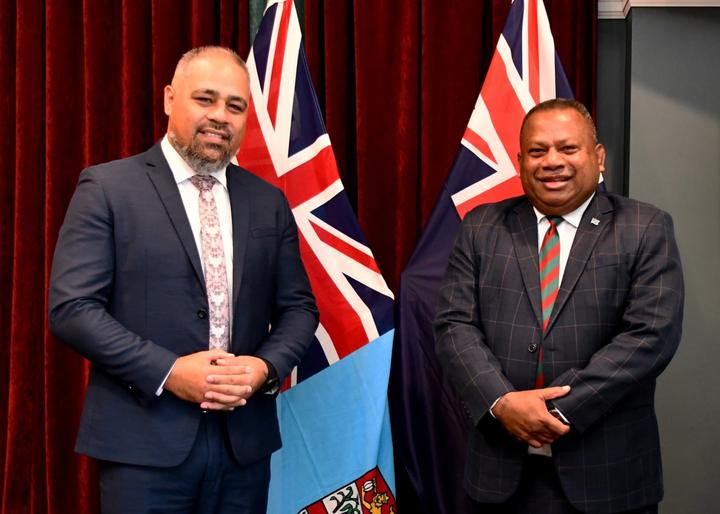New Zealand will need to send a strong signal to other Pacific Islands after China's overtures to Solomon Islands, Minister of Defence Peeni Henare says.
 New Zealand Defence Minister Peeni Henare
New Zealand Defence Minister Peeni Henare
After visits with counterparts in Fiji and Australia last week, the minister says maintaining a cooperative Defence Force presence in the region - and not solely for humanitarian aid - is a priority for New Zealand.
A draft agreement between China and Solomon Islands was leaked online this week which would allow a Chinese military and police force presence on the Islands, including ship visits.
Henare said the agreement took him by surprise, but alluded to China's moves to expand its influence in the Pacific.
"We know that they've increased for example defensive attachés across the Pacific, we know that they've offered more aid to the Pacific in different ways, shapes and forms - but to see an agreement like this that's certainly of huge concern to New Zealand and Australia and it certainly came through in my discussion with [Australia's Defence Minister Peter] Dutton on Friday," he said.
"The draft agreement that has been leaked publicly certainly wasn't something that I was told about.
"From the intelligence briefings we've received, we know China in their influence in the Solomon Islands as far as their willingness to support their community, their embassy as well as some of the security challenges that have been faced in the Solomon Islands - but to see the wording in the draft agreement has certainly come to me as a surprise."
National's Foreign Affairs Spokesperson Gerry Brownlee said the surprise was probably understandable, but "on the other hand probably indicates the relationship between Australia, New Zealand and the Solomons has not been as good as it could be for a while".
The government should be talking to the Chinese and Solomon governments to find out exactly what the agreement would entail, and why it was being pursued, he said.
"There's been some suggestion it would have some effect on the ability to transit through that area and we would need to know that sealines remain open.

Photo: RNZ / Dom Thomas
"Second is I guess understanding a lot more about why that option has been taken. It's pretty easy to say 'China is a big nation, an emerging power, and therefore we want to rely on that one' - if it's that simple then therefore I think we have a much bigger problem on our hands.
"It depends on what the objective is, so that also requires a great deal more understanding of how the strategic agreement between China and the Solomons is going to be manifested. Is it in fact going to be a full military base etcetera?"
China, Solomons defend deal
Foreign Minister Nanaia Mahuta and Prime Minister Jacinda Ardern have both denounced the draft agreement, saying it was very concerning and there was little reason or need for China to station its forces in Solomon Islands.
China has defended the move, with Foreign Ministry deputy director Wang Wenbin saying it was consistent with international law and international practice.
"It is beyond reproach as it is beneficial to social stability and lasting security of Solomon Islands and the common interest of regional countries," Wang said.
"Relevant countries should earnestly respect Solomon Islands' sovereignty and its independent decisions instead of deciding what others should and should not do self-importantly and condescendingly from a privileged position.

Foreign Ministry spokesperson Wang Wenbin. Photo: GREG BAKER / AFP
"Why are some individuals concerned about China-Solomon Islands cooperation when the government and the people of Solomon Islands genuinely welcome it? Who has been sending military aircraft and vessels right to others' doorsteps and flex muscles for years that severely threaten relevant countries' sovereignty and security? Who has been forming military circles that bring nuclear proliferation risks to the Pacific Ocean? And who has been deliberately hyping up tension and stoking bloc confrontation that cast a pall on regional peace and stability?"
Solomon Islands' government also issued a statement on Friday, saying the move was in line with its 2020 security strategy and policy of being "friends to all, enemies to none".
"The proposed security arrangements have a development dimension to it, covering humanitarian needs of the country besides maintaining the rule of law," the statement said.
It said the government was working to sign off a number of developments with China, including in civil aviation, trade, and tertiary education.
READ MORE
- Solomon Islands Prime Minister Manasseh Sogavare hits back at concern about China deal, claims no plans for Chinese military base
- Riot police guard Solomon Islands parliament after China security deal
- The Solomon Islands show no sign of backing down from security deal with China
- Decision to bring China’s military into the South Pacific in the hands of Solomon Islands PM
"The country is located in a global hotspot where the impact of climate change is three times the global average. It is still going through its nation building process and has placed much focused on improving the quality of lives of our people, indirectly addressing and overcoming stresses of a diverse society to achieve social cohesion."
It also thanked other partner nations for their development and security support including New Zealand, Australia, Fiji, Japan, the US and Indonesia, and noted it was finalising a bilateral agreement with Papua New Guinea.
More defence cooperation expected with Pacific neighbours
Henare said he took a dim view on the draft China-Solomons agreement, and New Zealand would play its part alongside Australia in sending a strong signal to other Pacific nations.
"The way we progress with this matter will be the kind of signal that we'll need to send across all of the Pacific Islands as we move forward," he said.
"We already have a small number of people in Solomon Islands after the most recent unrest and in my discussion with Minister Dutton we were quite clear that if there is legs to this and if this looks to continue that along with Australia, New Zealand would look to play its part there."
He said he would be "extremely concerned" if other Pacific countries were involved in similar negotiations.
"Acknowledging they are sovereign states and they can make those decisions, but I've always been clear that as a priority it must be one of the priorities for the Defence Force that as we look towards not just support through humanitarian aid and disaster relief but also in terms of our presence ... I've spoken many times about the relationship we have with the Pacific, we don't want to take that for granted, and we want to make sure that we're there sending the right signals and we can do that in part with the Defence Force."
His visit to Fiji is expected to lead to more cooperation on defence and security, and he alluded to more deliberate joint training exercises and Fiji's intention to act as a hub.
He said New Zealand was keen to show positive influence in the region, in a supportive, non-paternalistic way.
"We've got to have presence and we've got to be very clear and deliberate about what that presence looks like and in my discussions with Fiji and Australia we were both very much in alignment on that particular fact."

Defence Minister Peeni Henare with his Fijian counterpart Inia Seruiratu Photo: Fiji Government
Mahuta is following in Henare's wake, having flown to Fiji yesterday for her first visit to a Pacific nation since she started in the role.
Henare rejected the accusations of the previous foreign minister, Winston Peters, that New Zealand had been neglecting its Pacific neighbours.
"If anything we've continued to be quite a strong player in the Pacific on a whole host of matters and that still continues today ... I certainly didn't get any indications from them about being disappointed that they're feeling disconnected or that we've taken our foot off the gas. If anything they were hugely thankful and look forward to more of that relationship."
Ardern yesterday said most Pacific Islands had been locked down during the Covid-19 pandemic, and New Zealand's relationships with the region remained strong.


